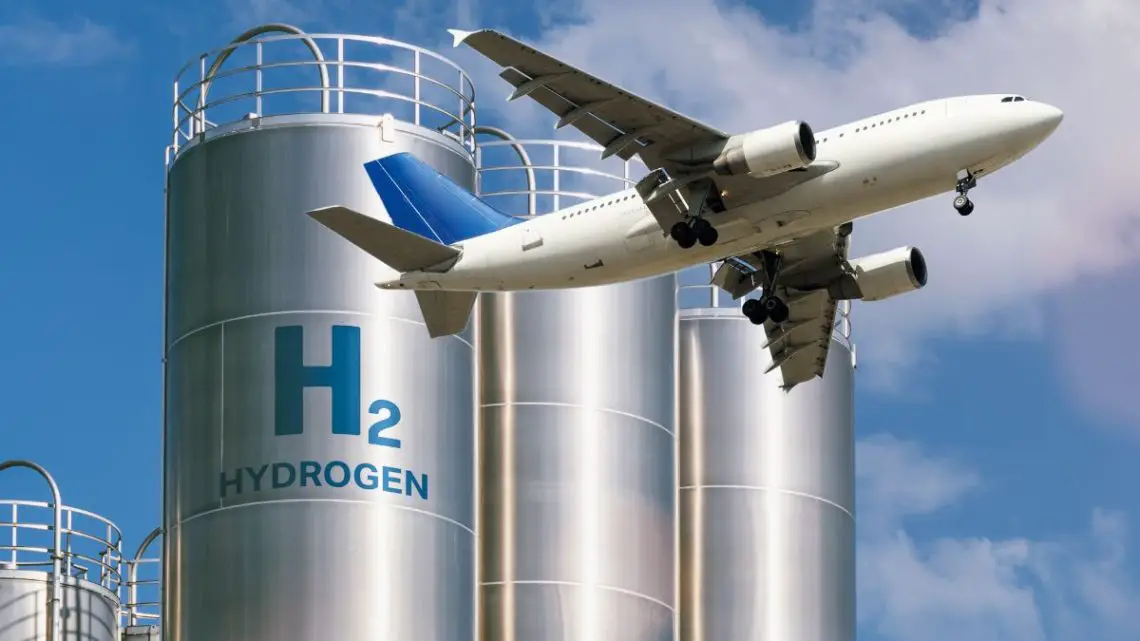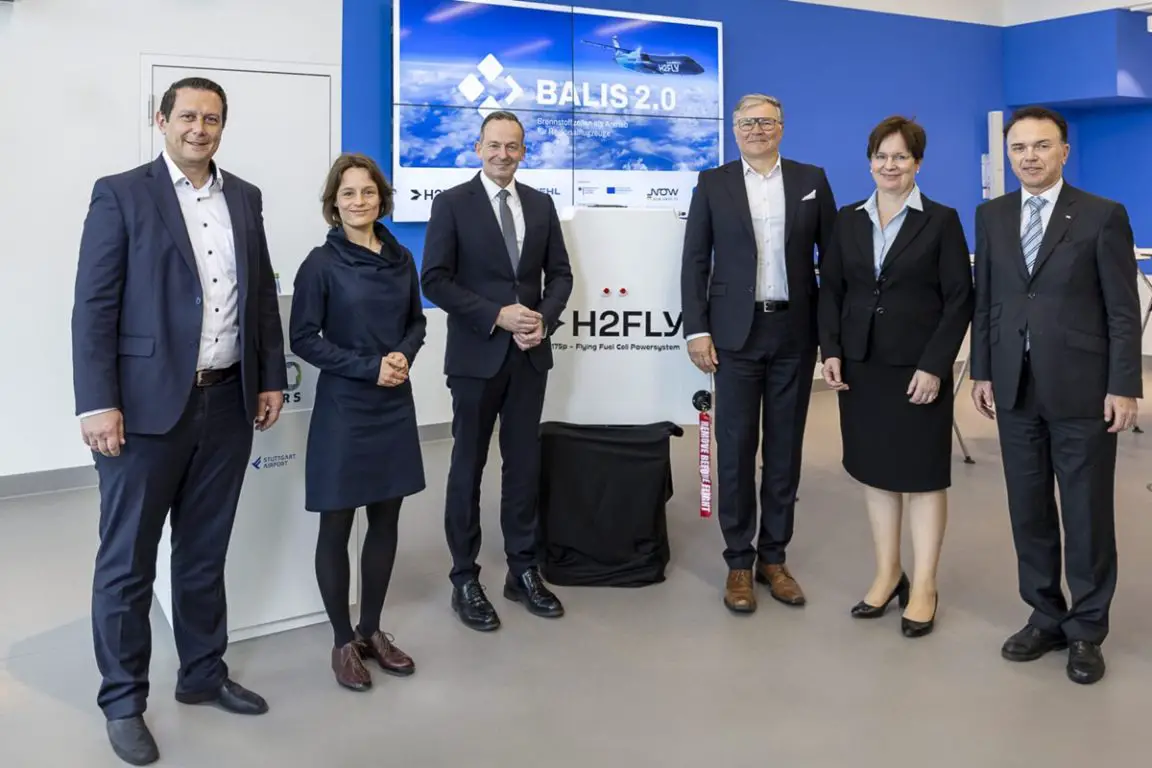
Is the hydrogen aviation industry dead? Not on Germany’s watch
May 15, 2024The BMDV is dedicated to advancing hydrogen fuel cell tech.
Emission-free hydrogen aviation isn’t just a pipe dream and the German Federal Ministry for Digital and Transport (BMDV) wants it to stay that way. The BMDV announced funding to further the development of fuel cell systems for regional planes with the launch of the BALIS 2.0 Project.
The much-needed BALIS 2.0 Project.
BALIS 2.0 Project is led by H2FLY (a Germany-based company dedicated to the development of hydrogen aviation and sustainable air travel) and supported by the German Aerospace Center (DLR) and Diehl Aerospace. Its purpose is to develop and test a high-performance fuel cell system. Not just any system either, but one that has an output of 350 kW (kilowatt) designed specifically for commercial aircraft applications.
This fuel cell system will be used as a basic module so that hydrogen-electric powertrain systems can be scaled up to the MW (megawatt)-class range. In this range, a fuel cell system could power a 40-80 seat regional aircraft, resulting in future, emission-free flight.
Everyone in the consortium has a part to play in the hydrogen aviation project.
The fuel cell system’s development and setup will be the responsibility of H2FLY.

H2FLY BALIS2.0 – from left to right: Volker Wissing Bundesverkehrsminister, Korinna Joerling Bereichsleiterin Wasserstoff NOW, Stephanie Bauer Leiterin PtJ, Josef Kallo CEO H2Fly, André Thess Institutsdirektor DLR TT, Florian Maier President and CEO Diehl Aerospace – Image Source: H2FLY
The German Aerospace Center will contribute to the hydrogen aviation project by studying the coupling behavior of fuel cells systems in the MW-class range with an electric drive in the BALIS test field. The DLR will conduct studies with the aim of optimizing the overall system operation.
As for Diehl Aerospace, it will focus on developing its high-performance and exceptionally reliable platform tech that will allow for efficient coupling and – more importantly – the scaling of fuel cell systems.
Germany, a pioneer in H2 aviation.
 “I am very proud that Germany is playing a pioneering role in developing hydrogen fuel cell systems for commercial aviation,” said Dr Volker Wissing, Federal Minister for Digital and Transport, in a recent H2FLY news release.
“I am very proud that Germany is playing a pioneering role in developing hydrogen fuel cell systems for commercial aviation,” said Dr Volker Wissing, Federal Minister for Digital and Transport, in a recent H2FLY news release.
Wissing added that the development of the systems creates the “technical foundation for marketable solutions” for future emission-free flying.
The BALIS 2.0 project will receive €9.3 million ($10 million) in funding from the BMDV from 2024 – 2026.
Will H2LY be a part of another world first?
In September 2023, H2FLY made hydrogen aviation history by completing the world’s first piloted flight of an electric aircraft powered by liquid H2. This was part of HEAVEN, an EU-funding research program.
With the help of this latest project and funding, there’s a good chance the company will make history again.



 With over 15 years of reporting hydrogen news, we are your premier source for the latest updates and insights in hydrogen and renewable energy.
With over 15 years of reporting hydrogen news, we are your premier source for the latest updates and insights in hydrogen and renewable energy.